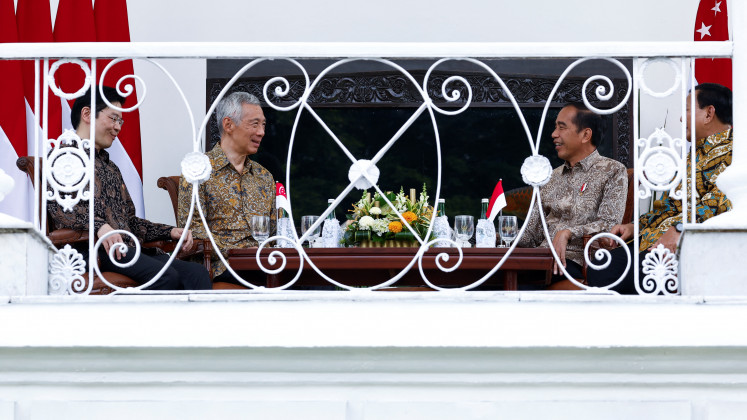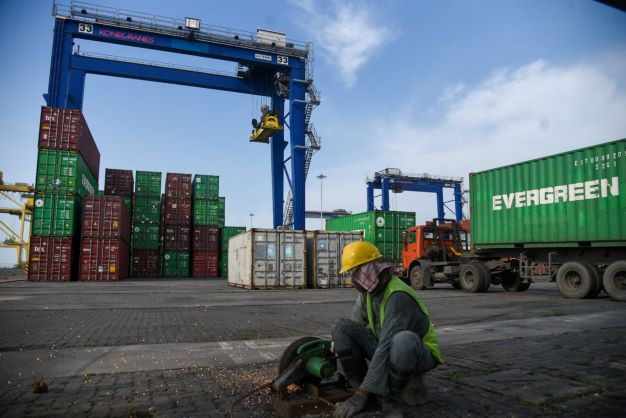Analysis: Unexpected rate cut: Fuel price hike unlikely
Bank Indonesia (BI) recently surprised us and the market, as the majority of analysts (11 out of 15) polled by Bloomberg expected the central bank’s benchmark rate to remain unchanged
Change Size

B
ank Indonesia (BI) recently surprised us and the market, as the majority of analysts (11 out of 15) polled by Bloomberg expected the central bank’s benchmark rate to remain unchanged. Citing deteriorating global economic outlook, BI reduced its benchmark rate by 25 basis points (bps) to another record low at 5.75 percent (exhibit 1). This move suggests three important outcomes going forward in our view:
First, the unlikely outcome that the government will raise subsidized oil prices. If the government were to raise domestic subsidized fuel prices in April this year, the central bank’s move would mean risking inflationary spike in the future in our view.
At this stage, with fuel subsidies accounting for just 6.8 percent of total government spending and given Indonesia’s healthy fiscal position, there is little pressure for the government to reform the present system, particularly as the popularity of the Democrat ic Party is currently at an all time low.
Second, given BI’s dovish tone that it would be closely watching inflationary pressure, we believe there remains one more rate cut by 25 bps to 5.50 percent, in line with our estimate of a 50 bps reduction in BI rate in the first half of 2012. We believe that much lower interest rate could mean liquidity problems for Indonesia’s smaller banks.
Third, lower interest rates will provide support for Indonesia’s economic growth amid global economic slowdown. It is worth noting that the government plans to reduce its 2012 GDP growth target to 6.5 percent-6.6 percent from 6.7 percent. That said, the government would like to accelerate discussions of the 2012 revised state budget with the parliament next month, which would also include the decision on whether to maintain the current fuel subsidy policy due to continued pressure on the back of higher oil prices.
At the stage of this cycle, we concur with the government’s view as we believe 2012 GDP growth will slightly decline to 6.4 percent from 2011’s level of 6.5 percent on the back of slower exports. However, our assumption hinges on the government not raising subsidized fuel price.
We also note that BI’s move to lower its benchmark rate coincided with the Fed’s decision to hold rates at near 0 percent through end-2014, suggesting below-trend growth in the US economy. Coupled with economic slowdown in Europe, global trades will be adversely impacted, including Indonesia’s.
Debt payment schedule in exhibit 2 shows that the governments of Portugal, Ireland, Italy, Greece and Spain must payback around 335.8 billion euros (US$446.6 billion) of their matured debt in the first half of 2012 alone, with the Italian government owing the largest proportion of almost 60 percent. Insolvency at a later stage would ruin market confidence, dragging down global economic growth.
Going forward, with external volatilities continuing to weigh on global markets, we believe the central bank still has room to further cut its benchmark rate by 25 bps to 5.50 percent in the first half, 2012, particularly as we expect domestic inflation to remain subdued.










